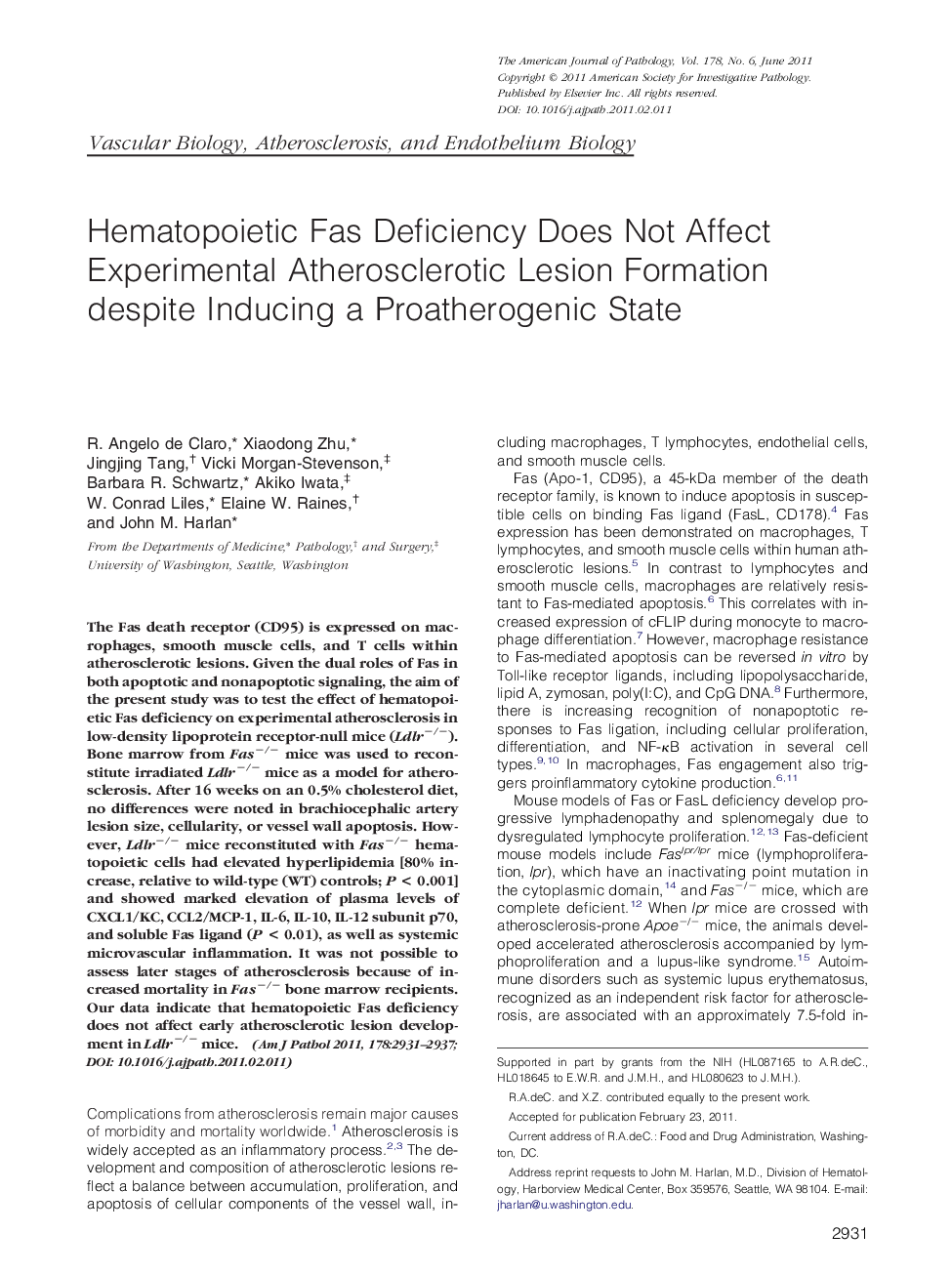| Article ID | Journal | Published Year | Pages | File Type |
|---|---|---|---|---|
| 5939559 | The American Journal of Pathology | 2011 | 7 Pages |
The Fas death receptor (CD95) is expressed on macrophages, smooth muscle cells, and T cells within atherosclerotic lesions. Given the dual roles of Fas in both apoptotic and nonapoptotic signaling, the aim of the present study was to test the effect of hematopoietic Fas deficiency on experimental atherosclerosis in low-density lipoprotein receptor-null mice (Ldlrâ/â). Bone marrow from Fasâ/â mice was used to reconstitute irradiated Ldlrâ/â mice as a model for atherosclerosis. After 16 weeks on an 0.5% cholesterol diet, no differences were noted in brachiocephalic artery lesion size, cellularity, or vessel wall apoptosis. However, Ldlrâ/â mice reconstituted with Fasâ/â hematopoietic cells had elevated hyperlipidemia [80% increase, relative to wild-type (WT) controls; P < 0.001] and showed marked elevation of plasma levels of CXCL1/KC, CCL2/MCP-1, IL-6, IL-10, IL-12 subunit p70, and soluble Fas ligand (P < 0.01), as well as systemic microvascular inflammation. It was not possible to assess later stages of atherosclerosis because of increased mortality in Fasâ/â bone marrow recipients. Our data indicate that hematopoietic Fas deficiency does not affect early atherosclerotic lesion development in Ldlrâ/â mice.
